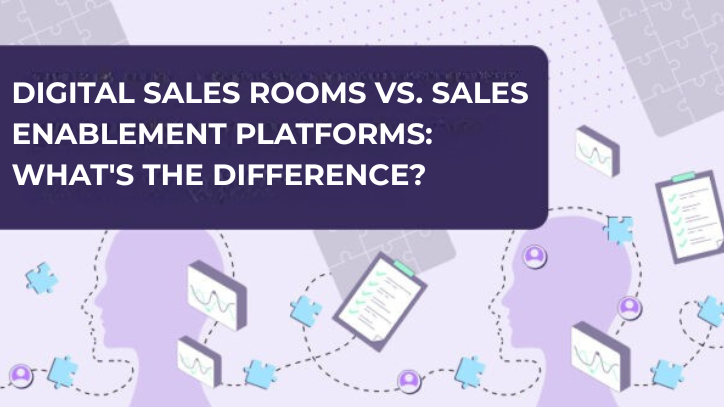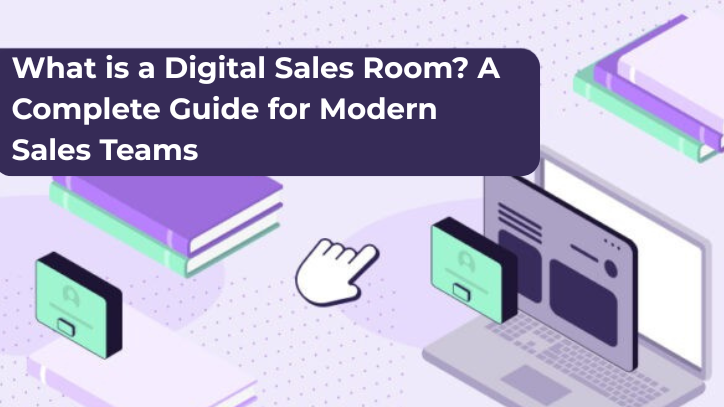We know all too well that B2B SaaS businesses are constantly searching for ways to enhance their sales processes and improve their overall sales effectiveness.
And this is where sales enablement software comes in.
These platforms equip sales teams with the tools and resources they need to excel. But they are not just technological solutions, but rather strategic partners that streamline the sales cycle and empower representatives to deliver their best performance.
By integrating B2B sales enablement software, companies can ensure that their teams are equipped with up-to-date information, relevant content, and comprehensive support, making the sales process not only smoother, but also more effective.
Try Walnut sales demos to boost your sales process >
What is sales enablement software?
At its core, sales enablement software is designed to optimize the sales process by providing a centralized platform where sales teams can access necessary resources and information with ease.
These tools serve a critical function in modern businesses, particularly in aligning the efforts of sales and marketing teams.
A sales enablement platform essentially acts as a bridge between strategy and execution, enabling sales representatives to access marketing materials, product information, and training resources. All tailored to meet the specific needs of potential customers at different stages of the sales funnel.
Imagine a scenario where a sales rep is preparing for a crucial client meeting.
Instead of sifting through emails or disparate files, they simply log into the sales enablement software to find everything from product demos to case studies, all curated to align with the client’s interests and industry. This not only saves time, but also significantly enhances the quality of interaction with the client.
On top of this, sales enablement software often includes features like CRM integration, content management, and analytics, providing valuable insights into what materials are driving engagement and helping to refine sales strategies in real-time.
Sales enablement ownership: Which teams are involved
Marketing
In the realm of sales enablement, the marketing team plays a pivotal role.
They are the storytellers and strategists who craft compelling content that attracts and nurtures potential clients.
That being said, marketing’s responsibility in sales enablement extends beyond just content creation. They analyze customer data to develop targeted campaigns that generate and qualify leads.
For instance, by utilizing data-driven insights, marketers can tailor content that addresses specific pain points, effectively setting the stage for sales reps to close deals.
Marketing teams also manage various platforms such as social media and email campaigns that play a crucial role in engaging with prospects at different stages of the buyer’s journey.
Sales
At the front lines are the sales teams, whose day-to-day interactions with customers place them at the heart of sales enablement.
Their primary responsibility is to use the insights and tools provided by the enablement platform to guide potential customers through the sales process effectively. This involves personalized communication based on the content and strategies developed by marketing.
Sales professionals focus on understanding the specific needs and challenges of their clients, aiming to provide solutions that are not just effective, but also perfectly aligned with the client’s objectives.
Their hands-on experience with clients provides invaluable feedback to the marketing and product teams, helping to refine strategies and product offerings continually.
Product managers
Product managers, although sometimes overlooked in discussions of sales enablement strategy, hold a critical position that intersects with both marketing and sales.
They ensure that the product offerings are not only in line with market demands, but also effectively communicated through the sales channels. Their involvement in sales enablement is crucial as they provide the technical expertise and product knowledge that supports both the marketing and sales teams.
By offering detailed product insights and updates, they help in crafting accurate and compelling sales pitches that resonate with targeted markets.
Additionally, product managers gather feedback from sales interactions to inform future product developments and enhancements, ensuring the product continually evolves to meet customer needs.
These collaborative efforts across marketing, sales, and product management underpin the success of a sales enablement strategy, ensuring that each team’s responsibilities are aligned and contribute to the overall goal of increasing sales efficiency and effectiveness.
Types of sales enablement tools
Sales enablement platforms encompass a variety of tools designed to optimize sales processes by enhancing strategy, training, and data analysis.
These tools are fundamental in transforming the way teams engage with prospects and manage their sales cycles.
Below, we’ll explore some key types of sales enablement tools that can revolutionize sales strategies in B2B environments.
Strategy and planning
Strategy and planning tools within a sales enablement platform provide a structured approach to preparing sales teams for success.
These tools help create a roadmap that aligns sales objectives with actionable tactics, ensuring all resources are efficiently utilized.
For example, sales enablement planning software aids in auditing existing content, managing resource requests, and providing actionable data that guides the sales strategy. This kind of planning is essential for executing targeted campaigns and achieving specific sales goals, acting much like a GPS system for navigating the complex landscape of B2B sales.
Training
Training tools in sales enablement platforms ensure that sales pros are not only well-prepared at the start of their roles, but also continue to evolve and adapt their skills over time.
Sales training software extends beyond initial onboarding to provide ongoing education and skill development, crucial for keeping pace with market changes and product updates.
These tools offer access to a variety of learning materials, from how-to guides and product knowledge to best practice videos, ensuring that sales teams remain competent and confident in their roles.
Analytics and insights
Analytics and insights tools are the eyes and ears of SaaS sales enablement, providing critical data that measures the effectiveness of sales strategies and tactics.
These tools offer granular insights into customer interactions, content performance, and overall sales effectiveness.
By analyzing data from sales interactions, these tools help identify patterns and trends that can optimize the sales process and accelerate deal closures.
Who needs sales enablement tools?
Sales enablement tools are designed to support various roles within an organization, each contributing uniquely to the business’s sales and marketing efforts.
These tools are essential not just for enhancing individual performance, but also for improving overall organizational efficacy in dealing with prospects and managing sales cycles.
Sales teams
For sales reps, quick access to the right information at the right time is critical.
Sales enablement platforms streamline this access, allowing reps to efficiently manage interactions with potential clients without the need to dig through files or request information from other departments.
This capability ensures that they can remain focused on what they do best—selling.
By minimizing downtime and enhancing productivity, sales enablement tools enable sales reps to move deals forward more swiftly and with greater precision.
Marketing teams
Marketing pros benefit immensely from sales enablement platforms, especially those that integrate content management systems.
These platforms allow marketers to create, store, and distribute sales content more effectively, while also providing insights into the content’s performance. This feedback loop helps marketing teams refine their strategies and produce materials that better meet the sales team’s needs and resonate more effectively with target audiences.
Enablement leaders and managers
For managers and leaders within the sales enablement space, these platforms provide a comprehensive overview of sales processes and SaaS metrics.
Sales enablement software serves as a critical tool for monitoring various aspects of business performance, including team efficiency, revenue growth, and return on investment. These insights are crucial for strategic decision-making and resource allocation, ensuring that the organization remains agile and responsive to market dynamics.
Benefits of sales enablement tools
Sales enablement platforms provide a plethora of benefits that significantly enhance the efficiency and effectiveness of sales processes within companies.
By bridging the gap between sales and marketing teams, these tools ensure that both departments are aligned, which can lead to increased revenue, better quota attainment, and a stronger brand identity.
One of the fundamental advantages of sales enablement software is the centralization of knowledge and resources. This centralization fosters an environment where sales and marketing teams can access and share information seamlessly.
For example, a B2B sales enablement platform can store essential sales content like case studies, sales playbooks, and whitepapers, making it easier for sales reps to find and utilize the right materials at the right time. This not only reduces the time spent searching for information, but also ensures that all interactions with prospects are relevant and impactful.
In addition, sales enablement tools enhance training and onboarding processes. New hires can ramp up quickly by accessing a wealth of training materials and micro-learning modules that are designed to speed up the learning curve and prepare them for successful interactions with customers. Companies with effective training programs often see new hires meeting their sales quotas more consistently and swiftly, which directly impacts the bottom line.
Another major benefit is the improvement in collaboration between sales and marketing teams. Sales enablement platforms provide insights into how sales content is being utilized and its effectiveness, allowing marketing teams to tailor their content creation strategies to better support sales efforts. This alignment is critical in creating a cohesive approach to engaging prospects and converting them into customers.
SaaS sales enablement tools also offer robust analytics and insights capabilities.
In essence, the deployment of a sales enablement platform empowers teams to perform at their best by providing them with the tools and resources needed to engage effectively with customers, streamline operations, and ultimately drive more sales.
How an interactive demo platform can improve your sales enablement
In the context of sales enablement, interactive demo platforms (like Walnut) stand out as pivotal tools in enhancing how sales teams engage with prospects.
They allow for the creation of dynamic, interactive demos that can be personalized for each prospect, providing a hands-on experience with the product early in the sales cycle.
This direct interaction can significantly boost the effectiveness of your sales enablement strategy and increase the likelihood of closing deals.





